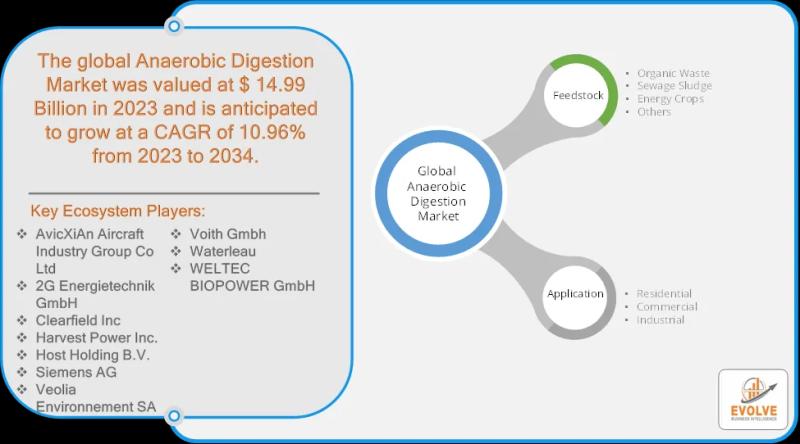A co-curricular approach to SDG education – Times Higher Education

Report on the Role of Higher Education in Advancing the Sustainable Development Goals
With the 2030 deadline for the Sustainable Development Goals (SDGs) approaching, higher education institutions are identified as key players in developing solutions. SDG 4 (Quality Education) is fundamental, providing the literacy and competencies required to achieve all other SDGs. This report outlines a strategy for higher education to effectively equip students to address complex, real-world sustainability challenges through SDG-focused co-curricular programs and experiential learning.
Integrating SDGs into University Education: Challenges and Solutions
Limitations of Formal Curricula in SDG Integration
The incorporation of SDGs into formal university curricula faces significant obstacles that limit its effectiveness. These challenges include:
- A frequent lack of alignment between pedagogy, curricula, and the overall student experience.
- Disciplinary limitations, where students in fields such as health and education have greater professional exposure to SDGs compared to those in other disciplines.
- A resulting widespread lack of awareness and understanding of the SDGs among the general student population.
The Potential of SDG-Focused Co-Curricular Programs
Co-curricular courses, which are activities undertaken beyond formal coursework, present a viable solution to these challenges. As they are not restricted to a single academic discipline, they offer a flexible and inclusive platform for promoting SDG engagement. This approach has the potential to:
- Reach a broader and more diverse student body.
- Foster interdisciplinary collaboration and solutions.
- Supplement discipline-specific knowledge with essential sustainability literacy.
For example, a co-curricular course focused on SDG 3 (Good Health and Well-being) can bring together students from health, engineering, linguistics, and economics. This diversity leverages varied expertise to generate innovative solutions for health issues that extend beyond the traditional boundaries of medicine and psychology.
Mobilizing Students for SDG Action
Leveraging Student Potential and Motivation
University students represent an invaluable resource for advancing the sustainability agenda. To mobilize this potential, it is crucial to make the global scope of the SDGs personally relevant. This can be achieved by framing the goals in the context of students’ own lives and futures:
- SDG 1 (No Poverty): How does global poverty impact my life and community?
- SDG 12 (Responsible Consumption and Production): How will my current consumption habits affect my future options?
- SDG 14 (Life Below Water): What are the personal consequences of rising ocean temperatures for my future plans?
By instilling sustainability values in a diverse group of students, their future professional actions can be transformed into meaningful change across various sectors.
A Framework for SDG-Oriented Experiential Learning
Experiential learning, when combined with co-curricular activities, makes SDG concepts more memorable and applicable to students’ daily lives. An effective framework for this approach must be structured to achieve specific outcomes.
Core Principles of Experiential Co-Curricula
To be effective, experiential learning programs focused on the SDGs must:
- Engage students in activities that are directly relevant to specific SDGs.
- Provide structured opportunities for both group and self-reflection using thought-provoking questions.
- Challenge students to critically analyze the concepts and knowledge they have acquired.
- Culminate in practical experiments and real-world applications.
- Be delivered through accessible and innovative platforms, including online courses, infographics, and digital content.
Crucially, these activities must allow for supervised trial-and-error, transforming abstract SDG literacy into practiced competencies.
Case Study: Applying Experiential Learning for SDG 4 (Quality Education)
A practical application of this framework involves a partnership with a local non-governmental organization (NGO) that provides free tutoring to students from low-income families, directly addressing the goal of inclusive and equitable quality education under SDG 4. In this initiative, university students organize and deliver free Generative AI classes to the NGO’s service users. This project:
- Provides underserved learners with early exposure to critical AI knowledge, helping to bridge the digital divide.
- Offers university students valuable teaching experience and a direct connection to community needs.
- Demonstrates how academic knowledge can be applied to create tangible, real-world change, preventing sustainable development from remaining a purely theoretical concept.
Conclusion
While not a complete solution, the integration of SDGs into higher education through experiential, co-curricular programs represents a significant step forward. This approach moves beyond the limitations of the formal curriculum to maximize the potential of students as agents of change. By providing opportunities for meaningful, hands-on engagement with sustainability challenges, universities can better prepare a new generation to contribute effectively to the 2030 Agenda for Sustainable Development.
1. Which SDGs are addressed or connected to the issues highlighted in the article?
-
SDG 4: Quality Education
This is the central theme of the article. It is explicitly mentioned as valuable for giving individuals the literacy and competencies needed to accomplish all other SDGs. The article focuses on how higher education institutions can integrate SDG education through co-curricular and experiential learning, such as partnering with NGOs to provide free tutoring and GenAI classes to students from low-income families.
-
SDG 3: Good Health and Well-being
The article uses SDG 3 as a prime example of how interdisciplinary co-curricular courses can address complex issues. It specifically discusses activities aimed at promoting mental health, such as introducing students to mental health first aid, creating gratitude bottles, and engaging with a Suicide Hotline responder on World Mental Health Day.
-
SDG 1: No Poverty
This goal is connected through the article’s emphasis on making global issues personal (“How does global poverty affect me?”) and through the practical example provided under SDG 4, where university students support learners from “low-income families,” addressing educational disparities linked to poverty.
-
SDG 12: Responsible Consumption and Production
The article connects to this SDG by encouraging students to reflect on their personal impact (“How will my shopping choices now affect my options in the future?”). It also provides a small, practical example of responsible consumption by mentioning the use of “recycled wine bottles” for an activity under SDG 3.
-
SDG 14: Life Below Water
This SDG is mentioned as an example to prompt students to think about the personal relevance of global environmental issues (“What do rising ocean temperatures mean for me and my future plans?”), thereby fostering awareness and a sense of connection to sustainability challenges.
2. What specific targets under those SDGs can be identified based on the article’s content?
SDG 4: Quality Education
- Target 4.5: “By 2030, eliminate gender disparities in education and ensure equal access to all levels of education and vocational training for the vulnerable, including persons with disabilities, indigenous peoples and children in vulnerable situations.” The article directly addresses this by describing a partnership with an NGO to offer free tutoring and GenAI classes to “students from low-income families,” aiming to reduce educational disparities for this vulnerable group.
- Target 4.7: “By 2030, ensure that all learners acquire the knowledge and skills needed to promote sustainable development…” The entire premise of the article—using co-curricular and experiential learning to equip students with “sustainability literacy and competencies”—is aligned with this target. The goal is to transform students’ values and actions to create meaningful change.
SDG 3: Good Health and Well-being
- Target 3.4: “By 2030, reduce by one third premature mortality from non-communicable diseases through prevention and treatment and promote mental health and well-being.” The article’s focus on mental health through activities like “mental health first aid” and engagement with a “Suicide Hotline responder” directly contributes to the promotion of mental health and well-being as stipulated in this target.
SDG 12: Responsible Consumption and Production
- Target 12.8: “By 2030, ensure that people everywhere have the relevant information and awareness for sustainable development and lifestyles in harmony with nature.” The article supports this target by advocating for educational methods that make students aware of how their “shopping choices” affect the future and by integrating practical recycling activities, thus promoting awareness for sustainable lifestyles.
3. Are there any indicators mentioned or implied in the article that can be used to measure progress towards the identified targets?
The article does not mention official SDG indicators but implies ways to measure the success of its proposed educational initiatives. These can be interpreted as informal or programmatic indicators.
SDG 4: Quality Education
- Implied Indicator for Target 4.5: The number of students from low-income families receiving free tutoring and GenAI classes. The article highlights this collaboration as a way to provide access to underserved communities, so tracking participation would be a direct measure of the program’s reach.
- Implied Indicator for Target 4.7: The number of students participating in SDG-focused co-curricular courses. The article proposes these courses as a solution, so their adoption and student enrollment would be a primary measure of progress. Another implied indicator is the number of interdisciplinary solutions developed by students for real-world problems.
SDG 3: Good Health and Well-being
- Implied Indicator for Target 3.4: The number of students engaged in mental health awareness activities, such as being introduced to mental health first aid or participating in World Mental Health Day events. This would measure the extent of the university’s efforts to promote mental well-being among its student population.
SDG 12: Responsible Consumption and Production
- Implied Indicator for Target 12.8: The number of students participating in experiential learning activities that involve sustainable practices, such as using recycled materials. This would serve as a proxy for measuring the integration of sustainability awareness into student activities.
4. Table of SDGs, Targets, and Indicators
| SDGs | Targets | Indicators (Implied from the article) |
|---|---|---|
| SDG 4: Quality Education | Target 4.5: Ensure equal access to all levels of education and vocational training for the vulnerable. | Number of students from low-income families participating in free tutoring and GenAI classes. |
| Target 4.7: Ensure all learners acquire knowledge and skills for sustainable development. | Number of students enrolled in SDG-focused co-curricular courses; Number of interdisciplinary solutions developed by students. | |
| SDG 3: Good Health and Well-being | Target 3.4: Promote mental health and well-being. | Number of students participating in mental health awareness activities (e.g., mental health first aid). |
| SDG 12: Responsible Consumption and Production | Target 12.8: Ensure people have relevant information and awareness for sustainable development and lifestyles. | Number of students engaged in activities using recycled materials or focused on sustainable choices. |
| SDG 1: No Poverty | (Connected via educational initiatives for low-income families) | (Measured through indicators for SDG 4.5) |
| SDG 14: Life Below Water | (Connected via raising awareness of environmental issues) | (Measured through general participation in sustainability awareness programs) |
Source: timeshighereducation.com
What is Your Reaction?
 Like
0
Like
0
 Dislike
0
Dislike
0
 Love
0
Love
0
 Funny
0
Funny
0
 Angry
0
Angry
0
 Sad
0
Sad
0
 Wow
0
Wow
0













































































